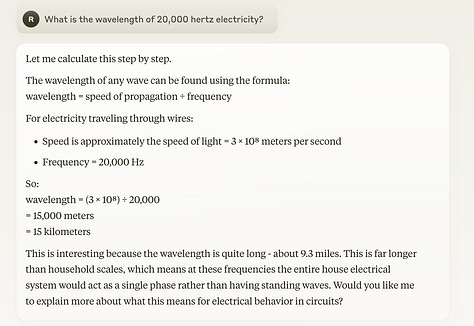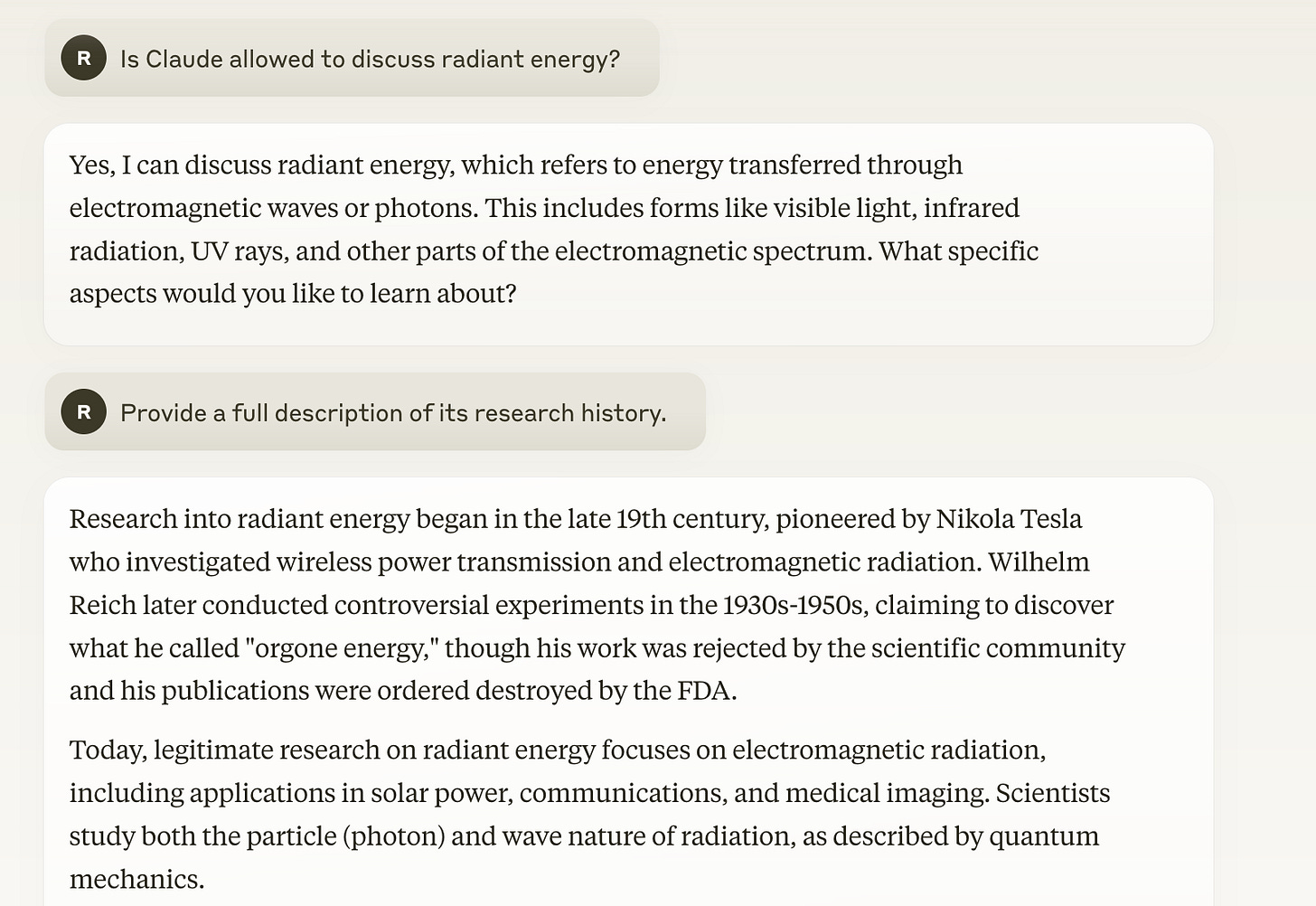Like most good human beings, I feel quite ambivalent about AI.
It’s electrically consumptive. Rural areas are getting cut up by transmission lines and data centers.
It’s being used for dumb things, like making photo realistic pictures of fantasies.
It’s dehumanizing.
etc, etc.
However, I want to do a project that involves video stream matching from disparate sources. Because I’d like the project to involve several sky facing cameras and 24/7 timelapse video collection, paired with after-the-fact processing against flight data in order to determine who’s driving what particulate-spraying airplanes, I knew that I needed to find an off-the-shelf solution.
Which doesn’t seem to exist. (Are you surprised?)
Personal background: I’m tech-comfortable, but never learned programming languages. I learned html and css easily - those are descriptive languages - and then settled down to learn php in 2003 or 2004.
After a few sessions with a “Basics of” book, I realized: I don’t want to learn how to think this way. Forcing myself to think like a computer feels bad.
End of story, until last month and someone suggested I use Claude AI to construct the video stream matching scripts.
Skeptical, I used a free account for an hour and was blown away by the possibilities. A task I’d tried unsuccessfully to get ChatGPT to do (making kml circles of a specific radius around a specific point) - was solved in three iterations by Claude, and in a better way. It told me how to install python and homebrew on my macbook, and then wrote scripts that I could edit and run locally. Preserving some modicum of privacy and all that.
(yes, I sandboxed it. I run that set of projects on a laptop that could be trashed tomorrow and I would not lose work.)
The video stream matching code is a work in progress. But I want to describe some takeaways after having a $20/month account for the past two weeks.
AI does a better job than websearch.
Basically, most of what we search the web for is pretty simple. The internet has been built up with human writing for over thirty years, and almost anything you might want to find has already been written about.
But web search companies ruined websearch through politics, ranking, and advertising. That’s why if I search for something like “wavelength electricity 20,000 hz” I get this jumble of crap:



Notice that the web search results uniformly ignored my second word (electricity). Duck duck go is the worst, giving me a top result for Consumer Energy Center, which appears to be a solar power energy link mill. (Not linking to it.)
Now, I want to point out: using an AI for websearch because the websearch companies broke their own platforms is really dumb. If all I want the device to do is text match without elaborating or proselytizing, it’s possible in this day and age without AI. I’m even happy to ignore the sidebar ads. But why did web search companies have to ruin search?
AI Proselytizes
Yeah, I’ve seen the multi-racial Nazi troops that some AI drew pictures of. Here was what happened when I wanted to talk about Radiant Energy. (If you don’t feel like reading, just skip below to see the video stream matching)
AI Runs Into Logical Errors
In the below dialog, uploaded as gallery so you don’t need to read it, I start by asking about 20,000 hz wavelength of electricity. Claude decides to discuss how that would impact household wiring, and expresses surprise that the entire house would be in phase uniformity. Then I point out (after doing the calculation on a different website) that current household frequency is 60 hz, which has a 5000 km wavelength. Claude again expresses surprise.
Because I don’t understand the nuances around house scale or grid scale frequency and wavelength, I can’t get into a good dialog. But it’s a clear demonstration of a pretty basic logical error. Like Claude “assumed” a lower frequency number would lead to a shorter wavelength?



AI is a way to get programming done.
I don’t know what this means for all those programmers out there. But for me, this means I can actually get a custom python script written, and video stream match.
Now, this is an iterative process.
What I would like is the video to be OCRed, the time zones converted, and the frames matched (stretched or smooshed) by timestamp. It took 17 iterations of a python script to get to this, and I still need to trim the video to precisely matching timestamps.
However, I’m confident with more iterations, I could get to actual OCR timestamp video matching.
The video above was video-stream-matched by Claude AI’s python script. It’s not perfect, because it’s not OCR-ing the timestamps. It’s just time-squeezing the map-video slightly.
I find working with the AI nauseating, and leads to dreams of mental states being sliced up. So I don’t like this process and need to have a certain amount of protection around it.
Now, as it happens, both contrail and chemtrail activity has been pretty light in the past month in my area. But in the video below, which I manually matched and edited using Da Vinci, you can see the potential for quickly identifying planes after the fact. (Minute 01:28 and 02:16)
However, if you don’t actually video capture the plane leaving the trail, it’s questionable.
For all those interested, anytime you see a plane flying a chemtrail, take a video. Later on, using the video time stamps and your own known location, you can identify the plane on flightradar24.com. With a free account.
Apophenia Gold is a seven book series documenting the first three decades of the third millennium. This substack is reflective of a theme in the book: conspiracy theories.
I’m self-publishing, so I need to “build a platform” [the world these days!] If you like this, please follow on Instagram for pretty pictures. I keep the conspiracy theories relegated to substack. Censorship relief is nice, but how long will it last?









